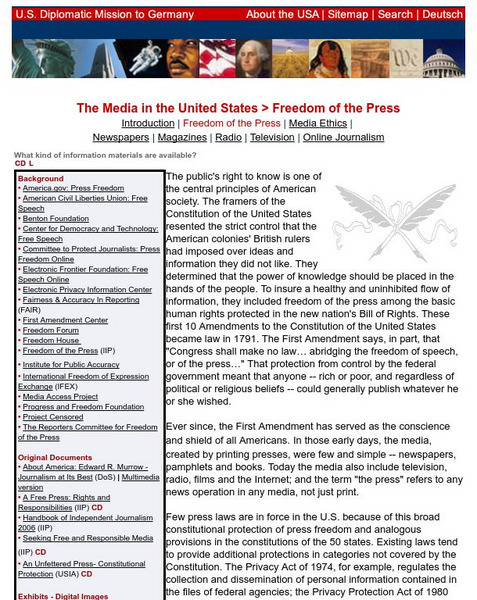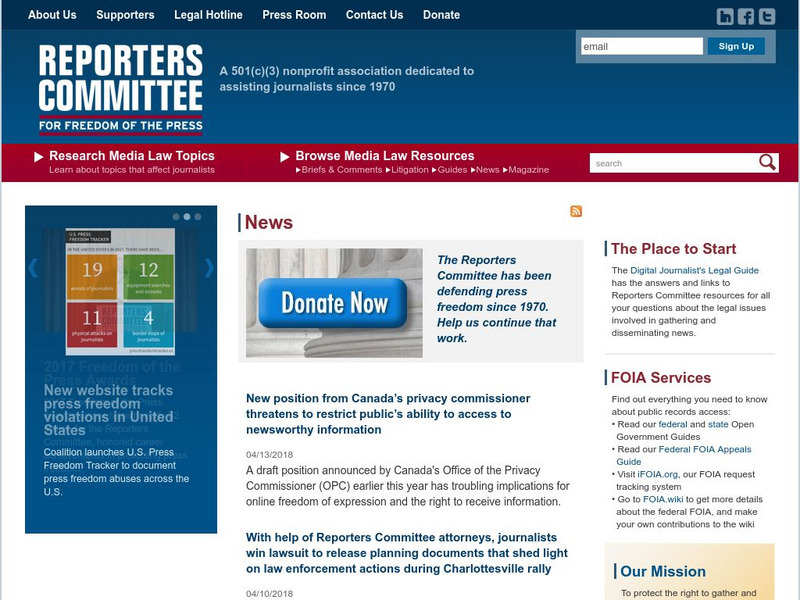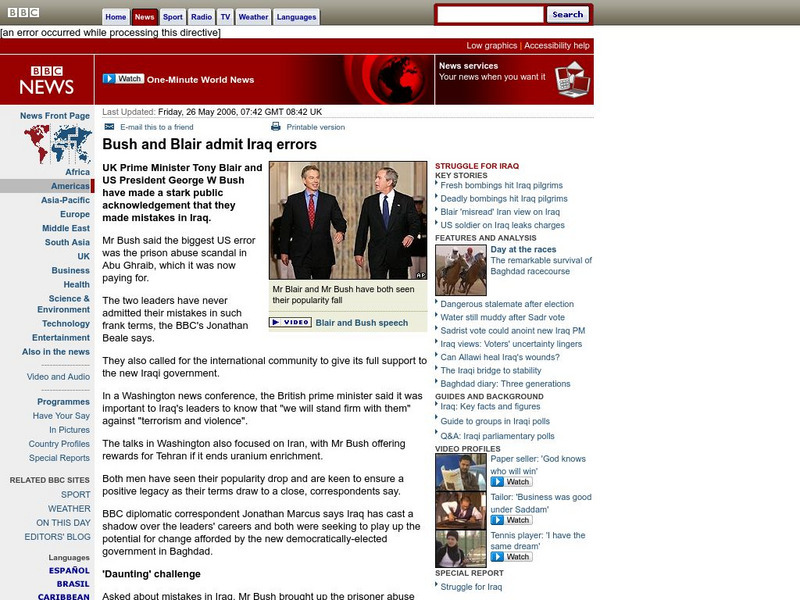Curated OER
Journalists Under Fire
Students research current events in relation to the United States military. In this current event lesson, students find out what is going on in the war and use what they find to explain and debate their stance on current events.
Curated OER
We Can Change the World!
Young scholars use newspapers and websites to examine human rights' abuses issues. They consider how these rights' abuses relate to citizens' rights. Following their research, they write a journal entry and discuss an action or project...
Curated OER
Lesson 1: Powerless?
Students formulate interview questions based on the information they learn from the video Power Lines. They conduct an interview with a relative, friend, or community member over 60 years old.
Curated OER
Mapping Human Rights in Our Community
Students work in groups to draw a map of their town or neighborhood. They include their homes, major public buildings and places. Students analyze their maps from a human rights perspective.
Curated OER
Meeting in a Fishbowl: Consensus vs. Democracy
High schoolers analyze the democratic and consensual decision-making process. They review the distinctions between decision-making and consensus and simulate a town meeting and a tribal meeting. They select an issue and research the...
Curated OER
I Give You My Heart
Second graders create hearts using stencils, pastels, construction paper, and tracing and cutting techniques in this Art lesson for the 2nd grade classroom. Emphasis is placed on the concept of repeating patterns. An ideal lesson for...
Curated OER
Hidin' Out
Fourth graders draw three major Underground Railroad routes crossing Indiana on an outline map and include habitats and towns. They produce an oral history involving at least three natural habitats and one human habitat.
Curated OER
Reading Comprehension
In this reading comprehension worksheet, students answer higher level thinking questions based on thought provoking words in their questions. Students complete 5 higher level thinking questions.
Curated OER
"1984" - George Orwell Lesson Plans
Through "1984" lesson plans students can explore issues that involve government, privacy, and security.
Other
U.s. Diplomatic Mission to Germany: Media in the u.s.: Freedom of the Press
Extensive government web site focusing on Freedom of the Press in American history. Many links to video, podcasts, primary documents, text, and case studies are included.
PBS
Pbs: Frontline: Freedom of the Press Around the World
Americans often take Freedom of the Press for granted, but this activity will remind students that other nations do not allow such liberal views of their press. Examine Russia, Iraq, Nigeria and other nations and evaluate the freedoms...
Reporters Committee for Freedom of the Press
Rcfp: First Amendment Handbook: Freedom of the Press
Very informative page focusing on the guidelines for freedom of the press, the first amendment. Offers examples and tenets to follow. Geared towards professionals but also accessible to students.
Huntington Library
Huntington Library: Freedom of the Press: The Trial of Peter Zenger
In this lesson, 5th graders learn about the trial of Peter Zenger and how it laid the foundation for the freedom of the press. They will examine primary source documents and hold a mock trial, ending with a discussion of the First...
University of Missouri
Famous Trials: The Pentagon Papers Trial
When is the freedom of the press more important than classified foreign policy information? The Pentagon Papers Trial attempts to answer this constitutional quandary. Included in this site is a summary of the trial, the actual Pentagon...
University of Maryland
Voices of Democracy: John F. Kennedy, "Address: "The President and Press" 1961
Read President John F. Kennedy's speech, "The President and the Press," which he delivered before the American Newspaper Publishers Association (ANPA) on April 27, 1961. In this speech, he attempted to explain and justify the Bay of Pigs...
Annenberg Foundation
Annenberg Classroom: Freedom of the Press
Check out this interactive timeline on the history of freedom of press in the United States.
University of Oregon
University of Oregon: Renascence Editions: Regulation of the Press [Pdf]
At this site from the University of Oregon you can read Defoe's arguments for a free press as they were published in 1704.
Other
Committee to Protect Journalists: Attacks on the Press 1999: Malaysia
A view of the authoritarian reputation of the Malaysian government as an example of the government's control of mass communications illustrated in their Printing Presses and Publications Act of 1984. Read how this law is used to dominate...
Reporters Committee for Freedom of the Press
Rcfp: 9 Keys to Avoiding Invasion of Privacy Suits
This Reporters Committee for Freedom of the Press article "9 Keys to Avoiding Invasion of Privacy Suits" list things that a photojournalist may want to consider before taking or publishing a picture.
Other
Baltimore Md: Mary Katherine Goddard
A brief and concise history of publisher and editor Mary Katherine Goddard. Goddard was an early activist and advocate of Freedom of the Press.
Reporters Committee for Freedom of the Press
Rcfp: The Reporters Committee for Freedom of the Press
This non-profit organization collects instances of First Amendment and Freedom of Information cases throughout the United States and reports on the facts and outcomes. An interesting cross section from this section of our law.
BBC
Bbc News: Bush and Blair Admit Iraq Errors
Article from leading British news service detailing a press conference in May, 2006, in which President George W. Bush and British Prime Minister Tony Blair, admit mistakes in Iraq, but urge support for the new government. There is also...
Digital History
Digital History: The Emergence of New Ideas About Personal Liberties
American colonists expected to have "English rights" as supported by the Magna Carta and the English Bill of Rights. See how these rights were applied in the trial of John Peter Zenger, whose acquittal reflected the right of freedom of...






















